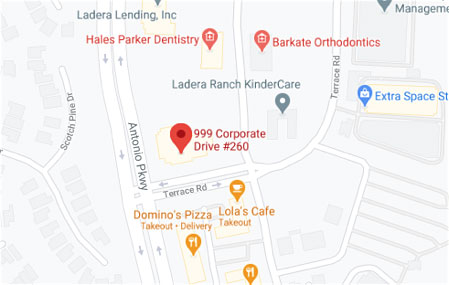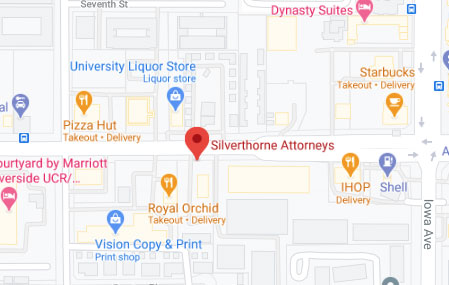
If you are on the roadways in California, and see a truck driver behaving in a way that is either reckless or negligent, you should consider making a report of their unsafe driving. Additionally, if you have reason to believe that a trucking company is allowing or engaging in any type of negligent or dangerous behavior, you can also make an official report to a federal agency or law enforcement.
Trucking Accident Injuries in California
It is extremely important to report unsafe truck drivers, as semi-truck and commercial truck accidents can often lead to severe injuries and death to those involved. Reporting an unsafe, negligent, or reckless truck driver can possibly save someone from catastrophic injuries. Some of the most common types of injuries suffered from truck accidents include the following:
- Head and Brain Injuries. Traumatic brain injuries (TBI) are one of the most common injuries suffered in a trucking accident. Brain injuries tend to leave victims with disorientation, confusion, nausea, and the inability to clearly think for months, years, or even the rest of their lives.
- Spinal Cord Injuries. Large trucking accidents can leave victims paralyzed as a paraplegic, quadriplegic or tetraplegic. Injuries can be permanent or even cause eventual death.
- Given the severity of truck injuries, oftentimes arms, legs, hands, and feet need to be amputated due to the violent impact of the collision.
- The sheer force and mass of a large commercial truck, or semi-truck can cause the serious injury of whiplash. A victim of a trucking accident can have their head snap sharply back and forth during impact, which damages the soft tissues in the neck, and bones, tendons and muscles can be permanently damaged.
- Internal Injuries. While trucking accidents can cause burns, cuts, bruises, scrapes and other minor abrasions, they can also cause significant and serious internal injuries. At first glance, the outward appearance of a victim may seem unaffected, but severe internal injuries can be present.
- Wrongful Death. The worst-case scenario is that someone dies in a trucking accident. In these cases, lawsuits of wrongful death are brought if the truck driver was driving negligently or recklessly.
Call 911
First, if you see any type of negligent, reckless, or dangerous driving by a truck driver on the roadways, call 911 immediately. Contacting law enforcement can ensure not only your safety, but that of other drivers on the roadways as well. When you give the 911 operator information about the truck driver—including license plate if possible—and the incident or current situation, they should dispatch law enforcement to that portion of the roadway to investigate the dangerous and unsafe truck driver.
File an FMCSA Complaint
The Federal Motor Carrier Safety Administration (FMCSA) is a division of the Department of Transportation (DOT). The FMCSA is charged with the authority to enforce all federal trucking laws and regulations. If you believe that you have witnessed a truck driver driving negligently or recklessly on the roadways, you can file a complaint with the FMCSA directly. Some reasons you could file a complaint against a truck driver include speeding, distracted driving, unsafe lane changes, driving recklessly or negligently, or driving while under the influence of drugs or alcohol.
Once you file a report with the FMCSA against a truck driver or trucking company, an official record is made with the National Consumer Complaint Database. This database, operated by the Department of Transportation, maintains all complaints against trucking companies and the reports of negligent driving behavior of their truck drivers. Your complaint will be registered along with others, and if a trucking company receives repeated complaints, the company can face serious consequences.
It is important to note that if you are a truck driver, and have knowledge that your trucking company is engaging in activities that would lead to unsafe truck driving, you may file a complaint against your trucking company with the FMCSA. Reporting your own employer for trucking violations can actually prevent unsafe truck drivers from causing accidents and injuries, or even deaths. If you know that your trucking company is engaging in the following practices, it is your right to file an official complaint.
- Breaking hours of service laws by requiring truck drivers to drive over the legally allowed time, or not allowing rest breaks, which could easily lead to unsafe truck driving, accidents, and injuries.
- Failing to maintain or inspect trucking vehicles in proper working order, making accidents more likely to occur.
- The falsification of any logbooks, to coverup that truck drivers are driving more than they should on the roads without rest or that their trucks are not being maintained properly—both of which could cause catastrophic accidents leading to injury or death.
File a California State Department of Transportation Complaint
While you have the right to file a complaint with the federal agency, you can also file a complaint with the State of California. If you witness any truck driver exhibiting unsafe, reckless, careless or negligent driving behavior in California, you can file a complaint directly with the California Department of Transportation. The State of California has its own rules, regulations, and requirements regarding trucking safety and unsafe truck drivers. Even if you are not involved in an accident, reporting unsafe driving to the DOT can help prevent any future accidents, injuries, or deaths.
Contact an Experienced Trucking Accident Lawyer in Orange County
While reporting unsafe truck drivers in California is an important step to take for public safety, if you or a loved one were a victim of a trucking accident caused by a reckless and unsafe truck driver, or unsafe procedures or practices of a trucking company, you may have the right to receive compensation for your injuries and/or property damage. Contact an Orange County truck accident lawyer at Silverthorne Attorneys today at (949) 234-6034 or online here for a complimentary consultation of your case.












